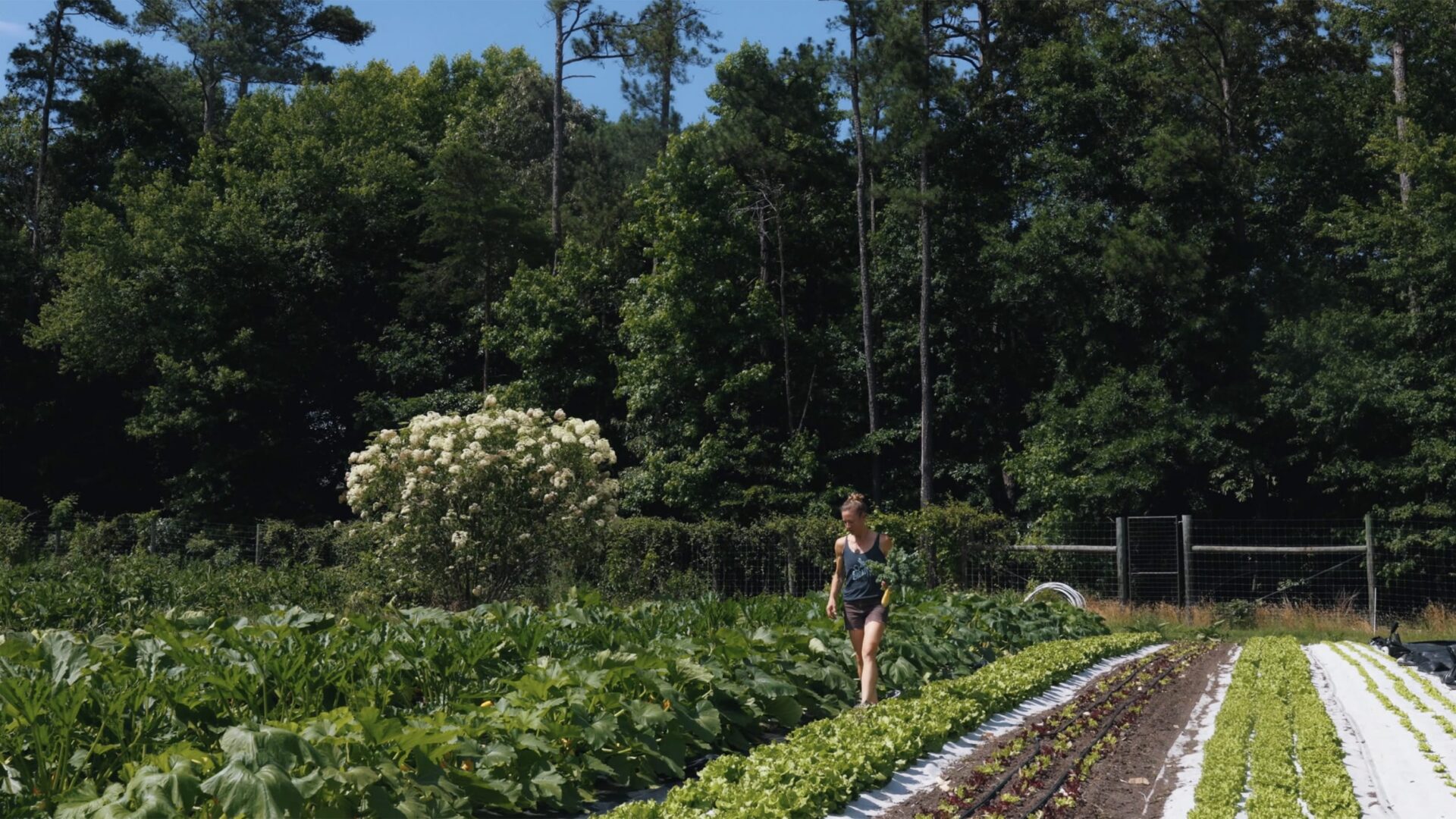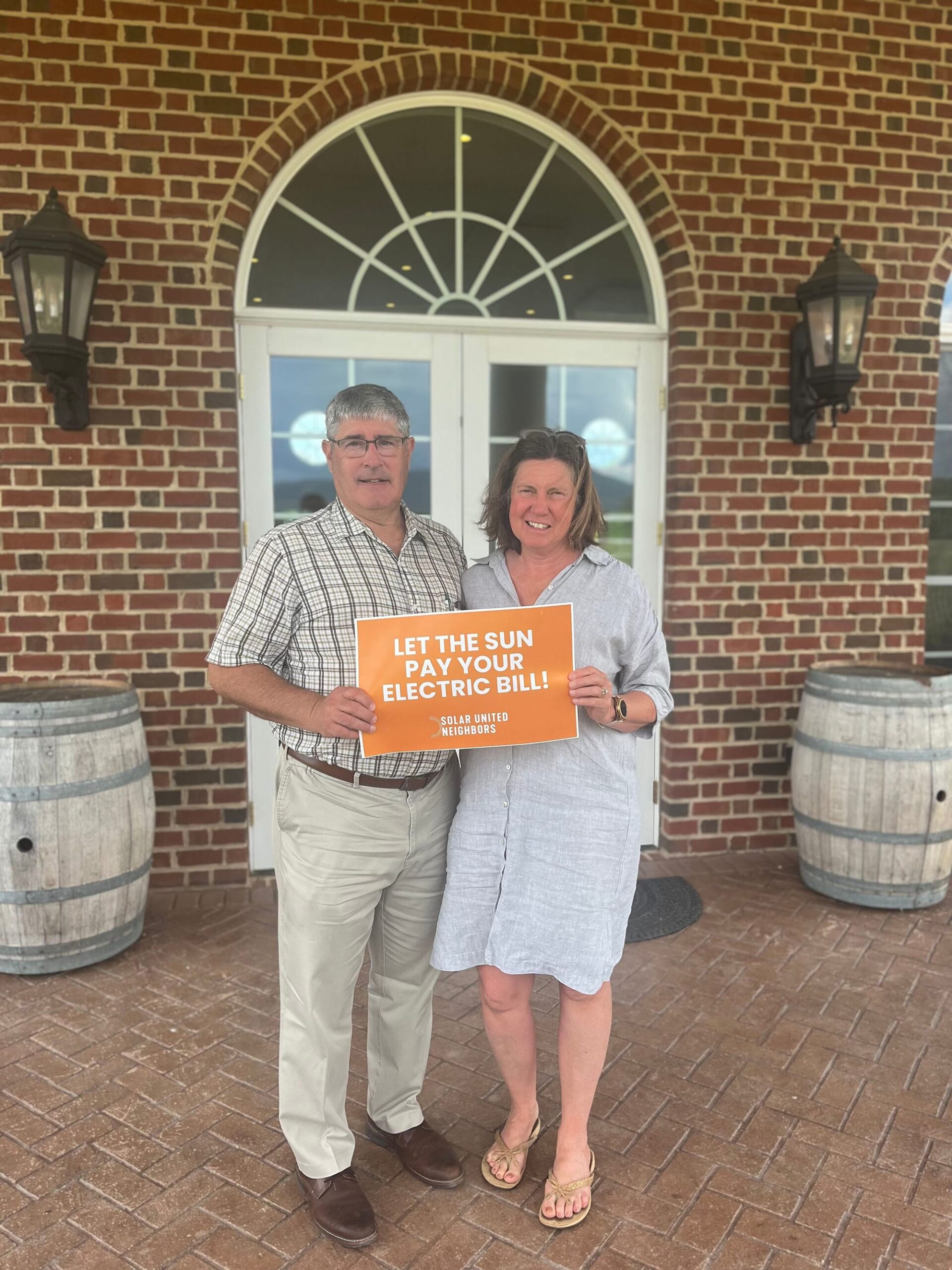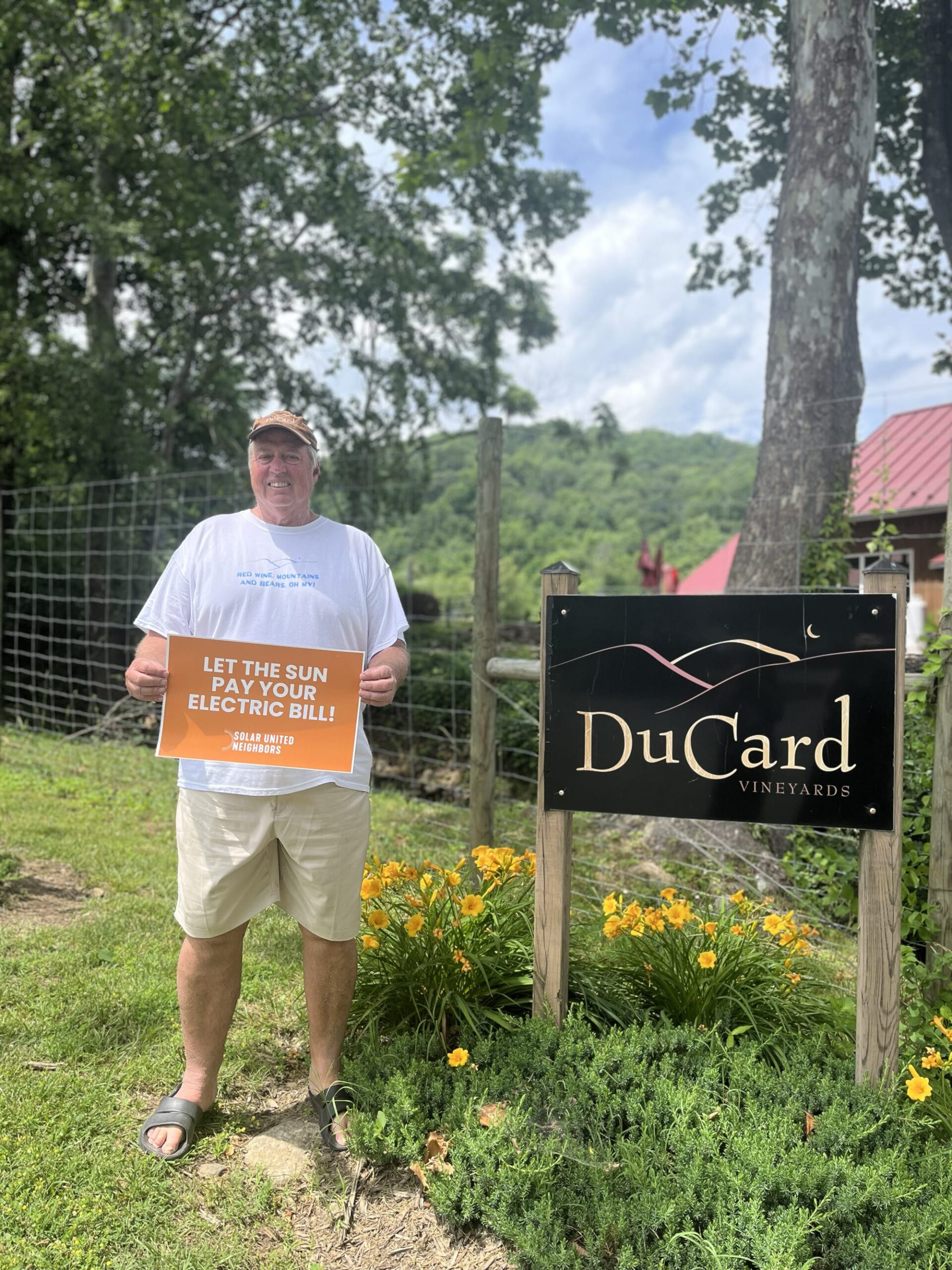Why Virginians need to protect the Rural Energy for America Program (REAP)
- Rural Energy for America Program,
- Stories

The Rural Energy for America Program (REAP) provides grants that help farmers and rural small businesses switch to solar energy. Unfortunately, recent federal funding shifts have put REAP grants on hold, leaving many rural businesses in limbo.
Brix & Columns Vineyards, DuCard Vineyards, and Broadfork Farm are three Virginia businesses that used a REAP grant to go solar.
Below, see the positive impact of these grants through the experiences of these businesses, and learn what you can do to help protect REAP.
Why we need to support small, rural businesses
Brix & Columns Vineyards, DuCard Vineyards, Broadfork Farm, and rural businesses like them, aren’t just places that produce quality veggies, flowers, and wine. They are the backbone of rural Virginia, providing jobs, supporting local economies, and preserving agricultural traditions.
Scott from Ducard Vineyards describes his business as a getaway for those coming from the city. For locals, Scott says that “it’s not easy to meet people,” but that the vineyard is a gathering spot where community members feel they belong.
Stephanie and Steve’s Brix & Columns Vineyard hosts a variety of events throughout the year, including the local high school’s prom (with a pause on wine sales). It’s an event with such a big impact that “the kids talk about it all year,” they share.
Janet from Broadfork Farm shares that a big part of her mission is to bring her community nutrient-dense vegetables, grown in a way that mimics nature.
Whether it’s a place to connect, to celebrate, or to connect with nature, these small businesses are cherished spots for the communities they serve.


Solar makes rural businesses more resilient
These three businesses experienced big savings after going solar, making their work more sustainable.
Brix & Columns Vineyard went from paying up to $7,000 in electric bills to only a couple $100 each year. Janet from Broadfork Farm says her electricity bill is now half of what it was.
They all use the savings to invest back into their business and community. “We’re able to put the savings towards improving our wine, or planting more vines, or improving the experience customers have here,” says Steve.
However, without REAP, these solar savings might not have been possible.
REAP makes going solar possible
Stephanie and Steve said that with REAP and a few other tax breaks, 84% was covered in the first year, making solar an easy investment to make. Janet found that the REAP grant removed financial barriers that might have prevented their access to solar.
Scott had a big reduction in his payback period. “Most farmers and rural businesses are not high margin businesses, so any small change, even in the payback period, can change it from a no-go to a go,” he shared.
REAP helps small businesses access solar, and the ability to go solar results in savings that can make businesses more resilient and sustainable. However, with REAP grants on hold, businesses like these may not be able to access solar, which could have a devastating impact on rural communities.
Tell Congress to protect solar investments like REAP
The most impactful thing you can do to protect REAP is submit a personalized comment to your federal representatives.
Submit your comment easily, in minutes, using SUN’s online form. Tell them your solar story, and let them know the difference solar can make for small rural businesses in Virginia like the ones outlined here.
Get the latest on solar straight to your inbox.
Fight for your solar rights.
Everyone has the right to go solar. Spread the sunshine nationwide and in your local community by taking action, joining events, and more.